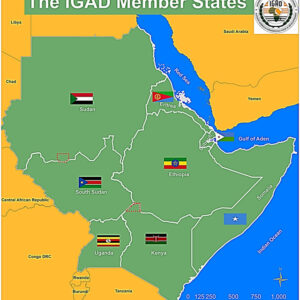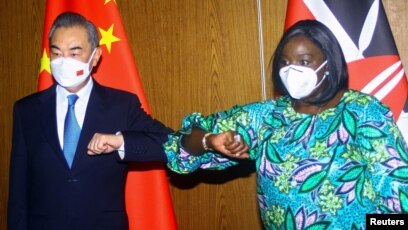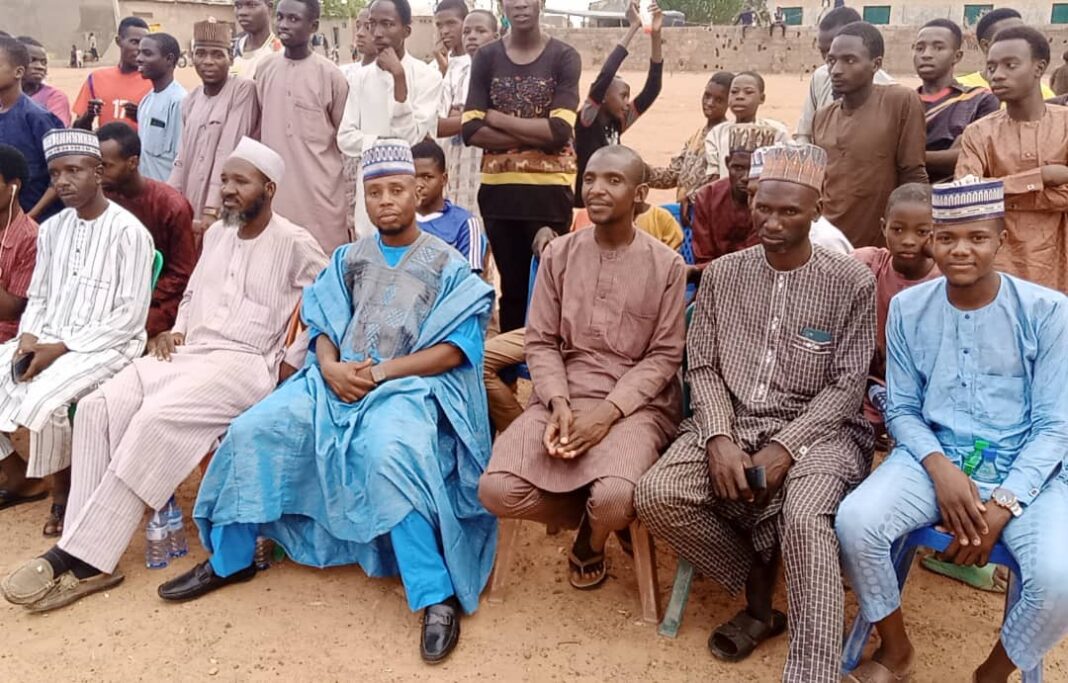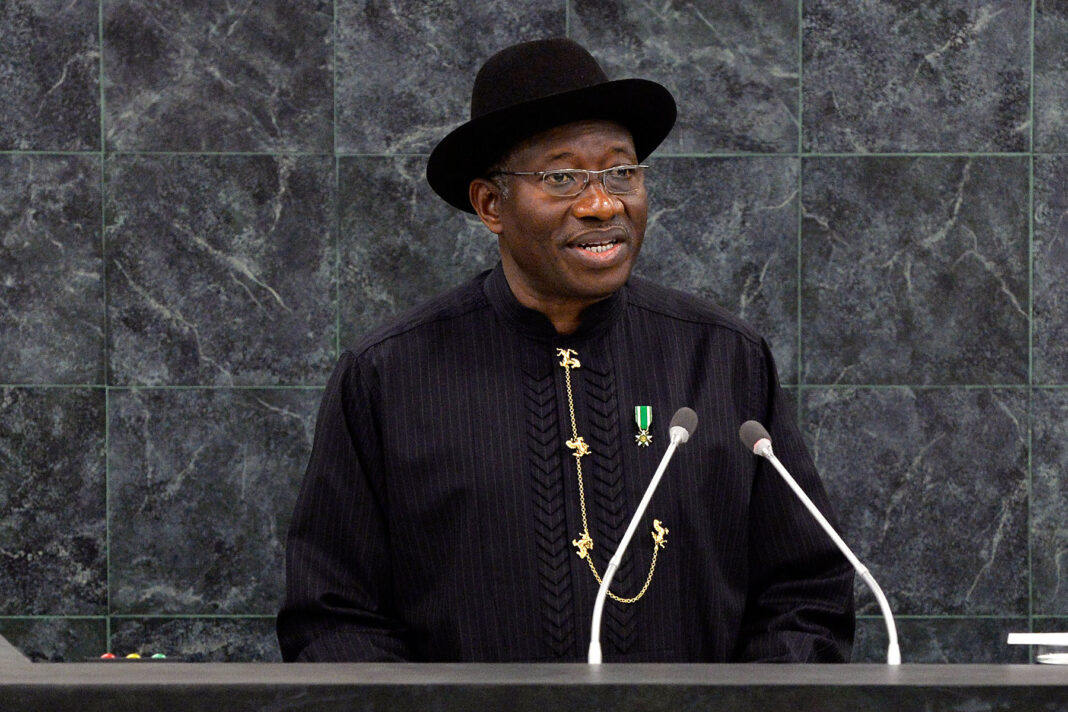Yi Fan
It was a sunny afternoon in Nairobi, Kenya. Under the clear blue sky a few workers were giving the final touches to a newly-built expressway. The Nairobi Expressway, financed and constructed by China Road and Bridge Corporation, stretches 27 kilometers across the city and connects major junctions such as Jomo Kenyatta International Airport, Nairobi’s central business district and the neighborhood of Westlands. Slated to open for traffic soon, it will significantly decongest the city and reportedly cut travel time from the south to west of Nairobi to 20 minutes from two hours during peak hours.
This is just one of the many projects of China-Africa cooperation. Such projects are found in many parts of Africa, including the Horn of Africa, a region on the easternmost part of the continent that consists of Djibouti, Eritrea, Ethiopia, Kenya, Somalia, South Sudan, Sudan and Uganda. It is also a fine example of the friendly exchanges between the two sides.

In as early as the 15th century, Chinese navigator Zheng He led the world’s most powerful fleet at the time to where is now Somalia and Kenya. What he brought to Africa was China’s goodwill and friendship.
Over 60 years ago, China established diplomatic relations with African countries. Ever since then, the two sides have supported each other and jointly forged ahead toward development and revitalization. More recently, China and Africa have stepped up their cooperation under the Belt and Road Initiative (BRI), and Forum on China-Africa Cooperation (FOCAC) which has also delivered real benefits to African countries and their people.
Following the spirit of China-Africa friendship and cooperation, China has pledged to play a constructive role for the peace and development of the Horn of Africa. During his visit to Africa at the start of this year, Chinese State Councilor and Foreign Minister Wang Yi put forward the Outlook on Peace and Development in the Horn of Africa. In a month’s time, China appointed a special envoy for the Horn of Africa affairs of the Ministry of Foreign Affairs. Then in mid-March, Ambassador Xue Bing, the new special envoy, led a working group to countries in the Horn, where he had in-depth discussions with leaders there. Many leaders expressed appreciation for the Outlook, and said that their country will take an active part in its implementation.
For peace and solidarity
The Horn of Africa sits on a unique strategic location and enjoys huge development potential. Peace and stability in the Horn is essential to peace, development and prosperity in entire Africa. In recent years, however, regional hotspot issues, including boundary and religious ones, remain complex and make headlines from time to time. On the other hand, external interference makes the situation even more volatile and complicated, only to undermine the interests of the countries and people in the region.
As a true friend of countries in the Horn, China is distressed to see conflicts raging on and causing misery. African issues should be solved by the African people in the African way, and foreign intervention is by no means conducive to complete resolution of issues. And, as a responsible major country, China upholds international equity and justice and always speaks up for fellow developing countries. For peace and security in the Horn, it has put forward its proposal.
And that proposal is the Outlook on Peace and Development in the Horn of Africa. The idea is for regional countries to independently address the triple challenges of security, development and governance and realize lasting peace, stability and prosperity. Under the Outlook, regional countries will play the lead in regional affairs, and hold their future in their own hands.
To work out ways to overcome security challenges, a conference on peace in the Horn of Africa will be helpful. It will provide a platform for regional countries to sit down together and settle differences through consultation and negotiation. It will also open a pathway that leads to political consensus and concerted actions. Much effort is needed in this process, but everything will be worth it when peace finally arrives.
In company
Peace and development go hand in hand. While peace and security is the precondition for development, development lays the foundation for solving security issues. They should not be viewed separately. So the Outlook also seeks to help regional countries overcome development challenges. For years, China has actively engaged in the development of African countries, especially in improving infrastructure and people’s livelihood. It has built over 10,000 kilometers of railways, up to 100,000 kilometers of highways, nearly 100 ports, and lots of hospitals and schools in Africa.
Across the Horn, flagship projects of China-Africa cooperation, including the Addis Ababa-Djibouti Railway and Mombasa-Nairobi Railway, are already up and running. They have not only created employment and growth for local communities, but also improved connectivity and integration in the region. Now under the new Outlook, the two railways will serve as two main lines of transport as well as social-economic development corridor in the region, and will be expanded to neighboring countries in the future. Another focus will be the development of the coasts of the Red Sea and East Africa. Along these areas, industrial and economic belts will be built to enhance capacity building of self-generated development.
Last November, at the Eighth Ministerial Conference of FOCAC, President Xi Jinping announced nine programs for cooperation with Africa, which includes medical and health, poverty reduction, and trade and investment promotion. To help regional countries achieve better development, China seeks to implement the nine programs in the Horn of Africa, and further align the BRI with regional countries’ development strategies.
Already, China is taking concrete steps to act on the Outlook and support development in the Horn of Africa. To help the region deal with the most severe drought in decades, China has announced that it will provide emergency food aid to Ethiopia, Eritrea, Djibouti and Somalia. Relevant work is well underway. In fighting COVID-19, China will fully deliver on President Xi Jinping’s pledge of providing one billion doses of vaccines to Africa as Africa works toward the goal of vaccinating 60 percent of its population by the end of 2022.
Sharing wisdom
In addition to security and development, governance is another pillar of the Outlook on Peace and Development. Sound governance provides a better environment for peace and development. To improve governance, it is important for regional countries to exchange governance experience while exploring development paths suited to their own national conditions.
As a reliable friend and sincere partner, China would also like to share its experience back home. Socialism with Chinese characteristics is the key to all its achievements and progress, and the leadership of the Communist Party of China (CPC) is the most essential attribute of socialism with Chinese characteristics. Over the past 100 years since its founding, the CPC has led the Chinese people in achieving two miracles of rapid economic growth and enduring social stability. This is the path China has followed to achieve lasting peace and development.
Just like everyone has their strengths, every country has its own merits. As countries learn from each other, they may draw from what they find applicable and beneficial in their pursuit of peace and development. There is, however, no one-size-fits-all model for development and governance. One country’s model or system should not be imposed on others, or serious consequences may follow. After all, a country’s development path and future should be decided by only itself.
China and Africa are a community with a shared future. In its cooperation with Africa, China has upheld the principle of sincerity, real results, amity and good faith and the principle of pursuing the greater good and shared interests. Now, under the Outlook on Peace and Development in the Horn of Africa, China will continue to work with regional countries on the three pillars of security, development and governance. And this will inject more impetus to building a China-Africa community with a shared future in the new era.
(The author is a current affairs commentator based in Beijing.)





